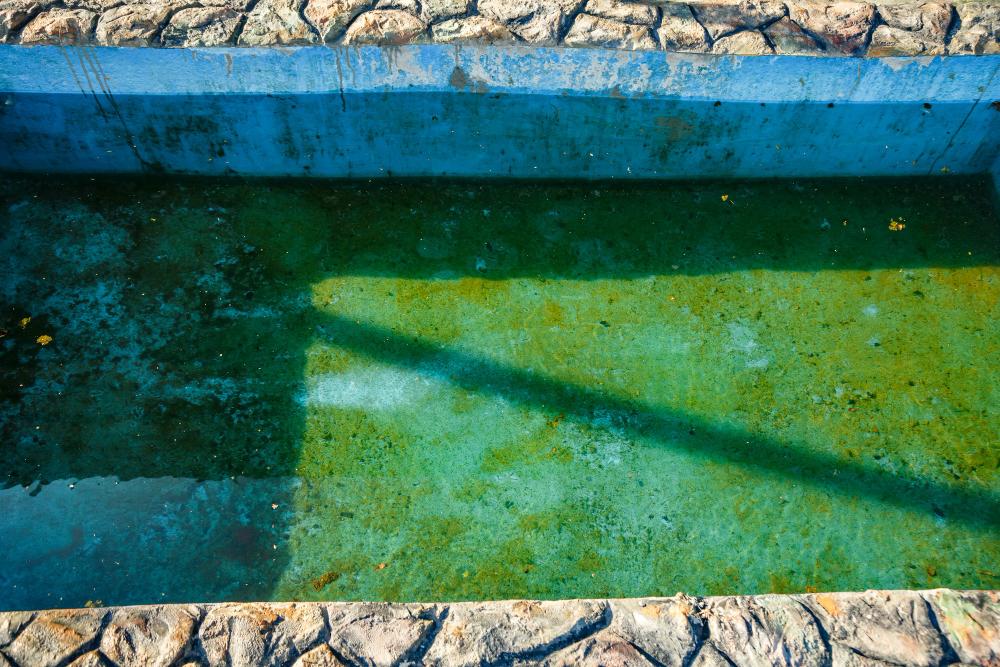
One of the most common problems that pool owners face is that of algae growth. Every swimming pool owner will, at some point, have to deal with this slimy green nuisance. Whether you're a new pool owner or a seasoned pro, it pays to know what causes pool algae growth and how to prevent it. In this post, we'll explore the various causes of swimming pool algae and what you can do to keep your pool crystal clear and algae-free. So, let's dive in!
1. Insufficient Circulation and Filtration
Proper circulation and filtration are critical to maintaining a healthy pool. Stagnant water can quickly become a breeding ground for algae growth, so it's important to ensure that your pool's circulation and filtration systems are functioning correctly. If circulation and filtration are inadequate, it's only a matter of time before the water becomes cloudy and green.
2. Imbalanced Water Chemistry
Another common cause of algae growth in swimming pools is imbalanced water chemistry. If your pool's pH, alkalinity, or sanitizer levels are out of whack, it can create the perfect conditions for algae to thrive. Regularly testing your pool's water chemistry and adjusting it as needed can help prevent algae growth and keep your pool clear and healthy.
3. Lack of Sunlight and Sanitation
Algae thrives in warm, sunlit water that's low on sanitation. If your pool doesn't get enough direct sunlight, it can create ideal conditions for algae growth. Additionally, if not enough sanitizer is added, or if the sanitizer levels are too low, algae can quickly multiply and take over your pool.
4. Poor Maintenance Practices
Finally, poor maintenance practices can also lead to algae growth in swimming pools. Neglecting to clean your pool surface, skimmer basket, and pump basket regularly can allow debris to accumulate and create conditions for algae growth. Failing to brush your pool walls and floor regularly can also create areas for algae to attach and grow.
5. Prevention and Treatment
Preventing algae growth in a swimming pool is much easier than treating it after it's already established. Proper maintenance practices such as regular brushing, skimming, and cleaning, along with adequate filtration and sanitation, can do wonders in keeping algae at bay. If you do find yourself battling algae, prompt treatment is essential to prevent it from spreading. Shocking your pool with a heavy dose of sanitizer and scrubbing the walls and floor can help eliminate algae quickly and effectively.
Conclusion
In conclusion, swimming pool algae growth is a common problem that can be prevented with proper maintenance practices and water chemistry control. By keeping your pool's water circulating, balanced, sanitized, and free of debris, you can significantly reduce the risk of algae growth. If you do find yourself with a case of algae, prompt treatment and continued prevention measures can help ensure that your pool stays clear, clean, and healthy for a long time to come. If you need help with pool repair in Melbourne, FL, contact All Phase Pool Remodeling today for free estimates.